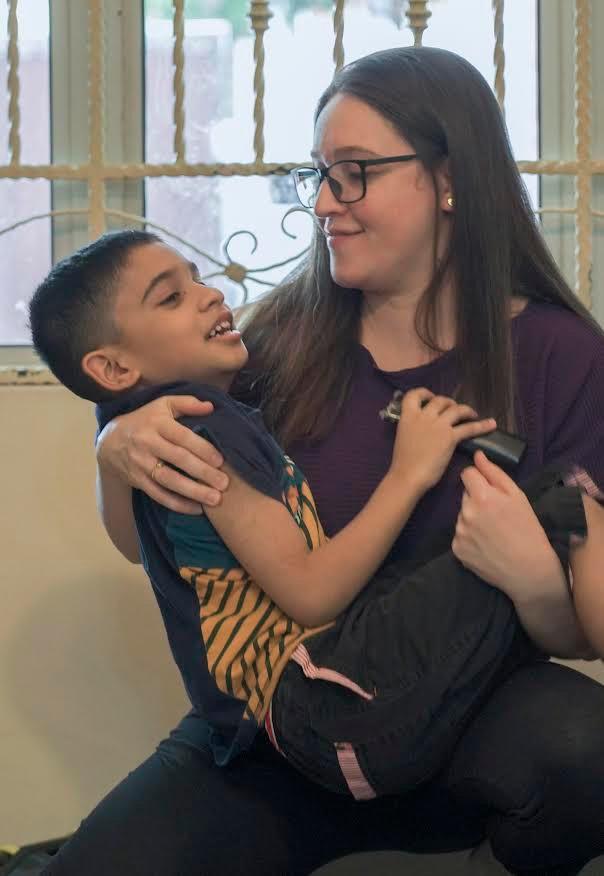IT was a few years ago when Desiree Kaur realised something amiss about her
son, Haans.
He would be hyperactive, jumping and running around with his arms flapping whenever he was by himself. But when he was in the company of other children, he would withdraw into his own shell.
“While at his play group, he would sit away from the other kids, and stare out the window,” Desiree told theSun.
“He was always happy to be on his own, but he would cry whenever a stranger visited. Instead of talking, he would babble like a baby. He was not forming proper words like any child his age,” she said.
“Going out was also a nightmare. He would cry relentlessly in unfamiliar places.”
Desiree recounted how he cried when everyone sang “Happy Birthday” for his
first birthday.
“I soon realised that there was something ‘different’ about my son,” she said. The counsellor who managed her son’s play group also agreed that there was something “peculiar” about Haans and advised Desiree to have him assessed by a professional.
That was when the challenges began. Desiree was told that it would take a year
or two to have a proper diagnosis of
Haans’ condition.
Days after the boy’s second birthday on July 27, 2017, she was informed by his doctor that he was autistic.
“I wasn’t surprised but I was angry that I did not know enough about autism to help my child.” But she and her husband prepared themselves for the challenges ahead.
They realised that bringing up a child with special needs was not just about helping him lead a normal life. Dealing with hurtful comments was one thing. She recounted how a doctor claimed that her son’s condition was her fault.
Haans was put in the care of a therapist, who worked on extending his attention span and improving eye contact.
“He often cried during those weekly sessions because he did not want to do the exercises. It took two months for the therapist to get through to him,” Desiree said.
Soon, he learned to look people in the eye and started warming up to others around him.
At age six today, Haans’ battles are far from over. But according to Desiree, he has made significant progress.
“Three weeks ago, I saw him playing with a group of children at a family gathering.”
For Desiree, taking care of Haans also meant increasing her personal knowledge about child education. In the years since her son was diagnosed with special needs, she has earned a masters in Education.
She created a website, projecthaans.com, where she shares a list of available services and resources for parents facing similar challenges. It was a journey of trial and error.
“I do my best every day, even on days when I’m not at my best. I have my good and bad days, angry and sad days too and I have learned
not to hide those emotions
from Haans.”
“I would tell him how I feel and he understands emotions,” she added, debunking the view that autistic individuals are blind to emotions. “They just express it differently.”
Haans’ achievements have been unmistakable.
True to his name, which means “swan” in Sanskrit, Haans’ story is truly a fairy tale of an ugly duckling that has turned into a graceful swan.










